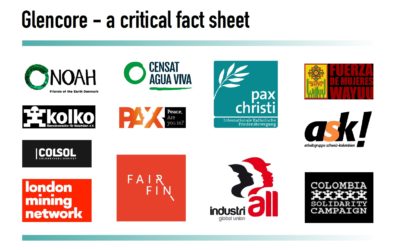2016 saw a record 200 killings of people defending their land, forests and rivers against destructive industries
Murder is just one of a range of tactics used to silence land and environmental defenders, including death threats, arrests, sexual assault and aggressive legal attacks.
Jakeline Romero from Colombia (above, right) has faced years of threats and intimidation for speaking out against the devastating impacts of El Cerrejón, Latin America’s largest open-pit mine. Owned by London-listed companies Glencore, BHP Billiton and Anglo-American and run by a domestic operator, the project has been blamed for water shortages and mass displacement. (1)
This report tells the stories of countless people like Jakeline as they stand up to the might of multinationals, paramilitaries and even their own governments in the most dangerous countries on earth to be a defender. It also analyses why they are facing increased threats, and explores what can be done to keep activists safe.
Killings of defenders are not only growing, they’re spreading too. In 2016 we documented 200 killings across 24 countries, compared to 185 across 16 in 2015. Almost 40% of those murdered were indigenous. A lack of prosecutions also makes it hard to identify those responsible, but we found strong evidence that the police and military were behind at least 43 killings, with private actors such as security guards and hitmen linked to 52 deaths.
Colombia among deadliest countries for activists
The ruthless scramble for the Amazon’s natural wealth makes Brazil, once again, the world’s deadliest country in terms of sheer numbers killed, though Honduras remains the most dangerous country per capita over the past decade.
Nicaragua is beginning to rival that dubious record. An inter-oceanic canal is set to slice the country in two, threatening mass displacement, social unrest and the violent suppression of those who stand against it. A voracious mining industry makes the Philippines stand out for killings in Asia.
In Colombia, killings hit an all-time high, despite – or perhaps because – of the recently signed peace deal between the government and the guerrilla group, the FARC. Areas previously under guerrilla control are now eyed enviously by extractive companies and paramilitaries, while returning communities are attacked for reclaiming land stolen from them during half a century of conflict.
India has seen killings spike against a backdrop of heavy-handed policing and the repression of peaceful protests and civic activism.
Interview with Jakeline Romero from Colombia’s Coal Mining Region Guajira:
More information and full report by Global Witness:
https://www.globalwitness.org/en/campaigns/environmental-activists/defenders-earth/


